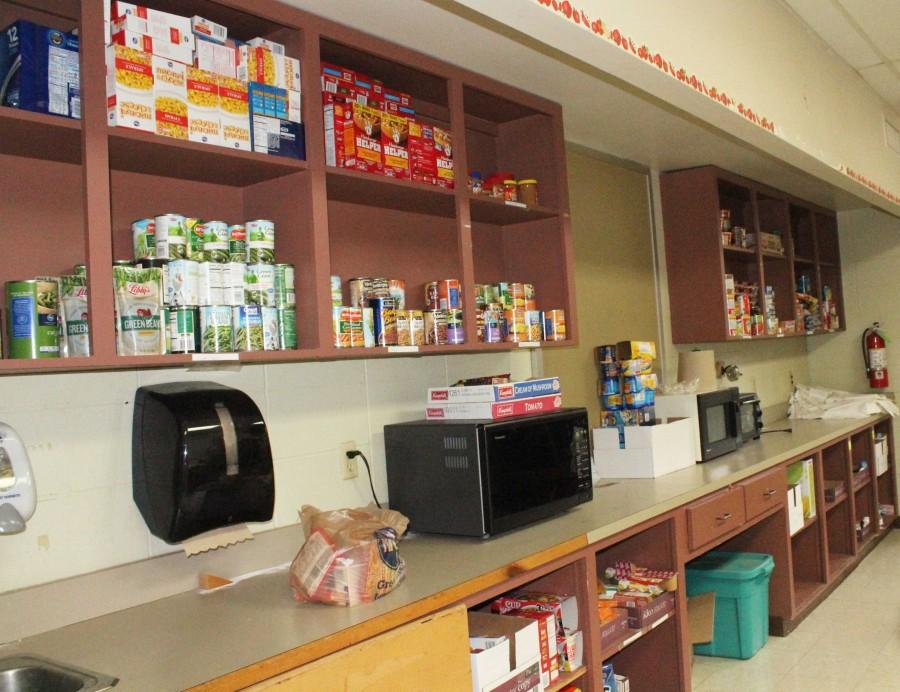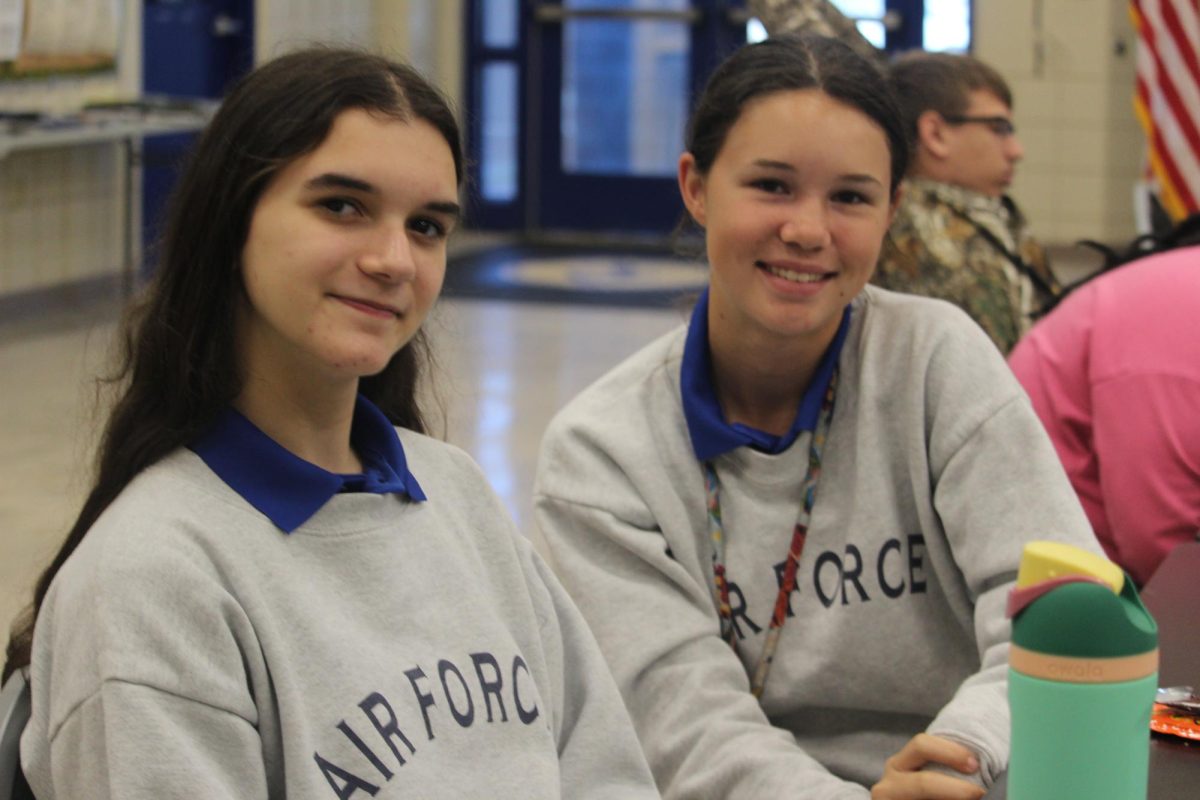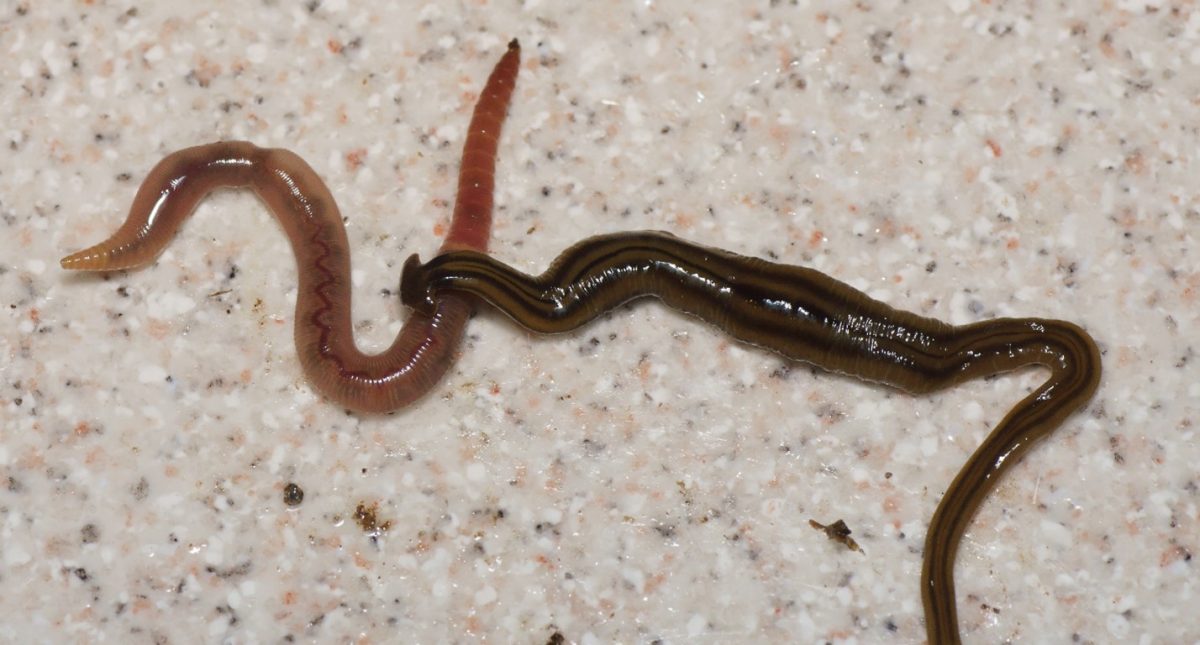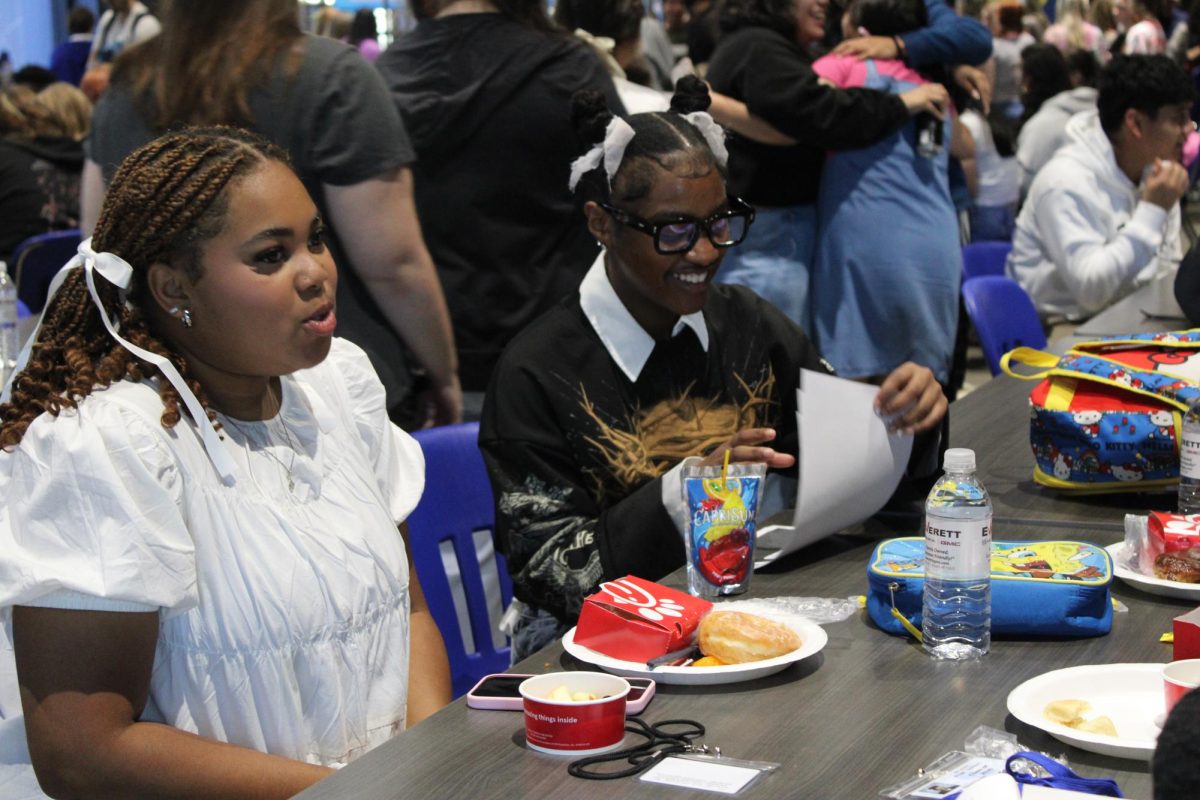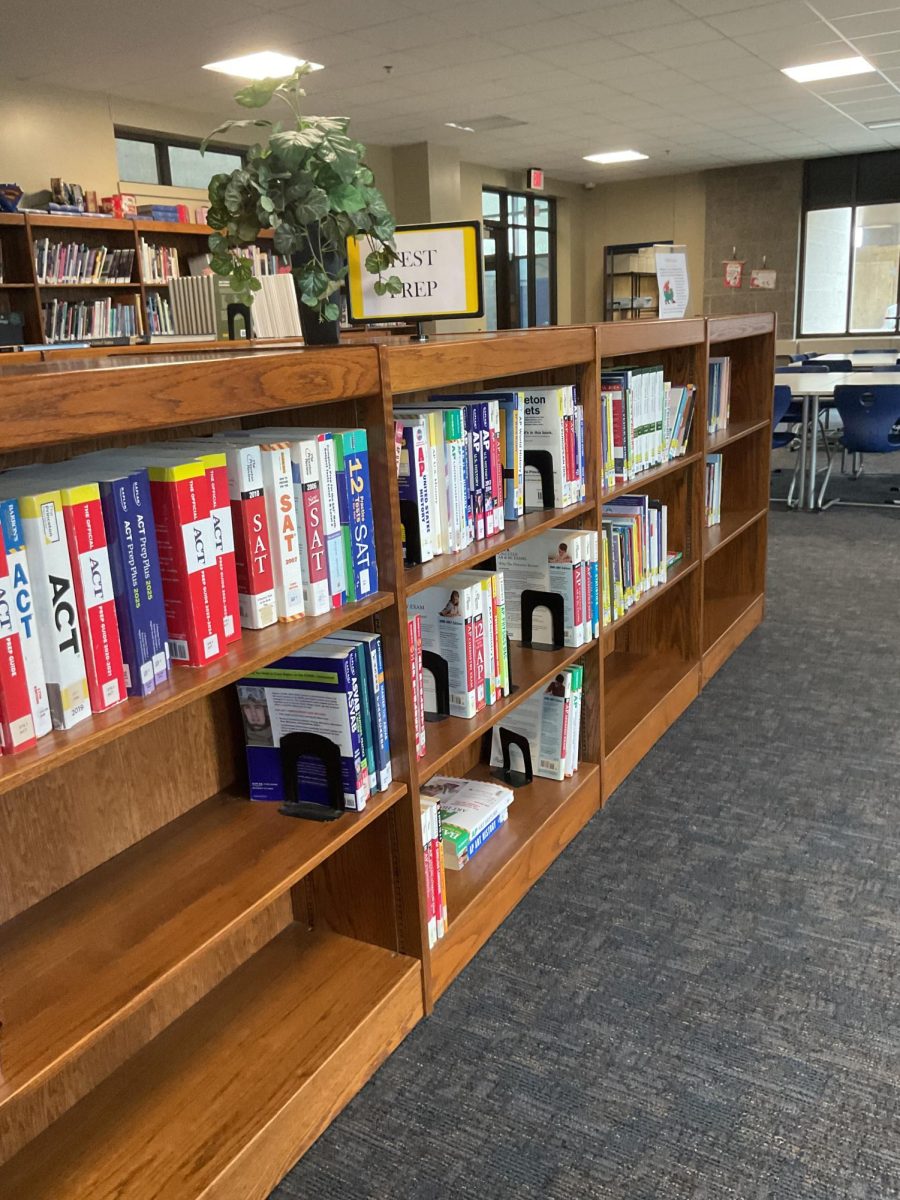Homework. Clubs. Sports. Tests. The average high school student has many things to worry about, and for some, wondering where the next meal will come from is one of them. In the district, 38 percent of students are on free or reduced lunch. Five years ago, Special Education teacher Trish Humphry started a district-wide food pantry.
“She had a student who was always coming to school wanting to sleep,” Special Education teacher and co-organizer of the food pantry Kathryn Fletcher said. “Come to find out, he had no food at home to eat for breakfast. So she wound up giving him peanut butter and a tube of crackers, and that’s how this got started.”
Using donations from students and the community, Fletcher and Humphry are able to fill up boxes of non-perishable food and send them home with students in need. The box size depends on both the size of the family and the current supply.
“[Each box] would be for Thanksgiving week or for at least one week of Christmas. We don’t have limitless food,” Fletcher said.
Since Fletcher and Humphry are based out of the high school, district social worker Lisa McNeely contacts them frequently with the number of boxes that are needed for other schools in the district. There are around 3000 students out of Bryant’s 9000 who receive free or reduced lunch–almost three out of every 10 students. Despite the high school having the largest student population, it has the lowest percentage of students receiving free and reduced lunch.
“We have a lot of kids that are too embarrassed. We have too much pride as teenagers to admit that our parents don’t have enough food in the house,” Fletcher said.
Fletcher and Humphry have recently gotten permission to keep all the proceeds from the food drive instead of giving a portion to the Salvation Army as has been done in previous years. With help from ROTC and NHS food drive efforts, they hope that with the extra food they will be able to fill more boxes.
“[As teachers], we have to teach the whole child, and [if] part of teaching the whole child involves feeding you, that’s what we’ll do,” Fletcher said.


